#HARU
Note
so on a scale of aang (killing is always wrong) to katara (killing is a statement) to sokka (killing is a tool), where would the rest of the gaang + ozais angels go?
toph is hard to pin down because she’s the only character who ever actually kills people outside of the context of war. and i don’t know if she even realizes what she did, because she’s 12 and the adrenaline rush of discovering that you can actually metalbend probably supersedes any logical reasoning in that moment, but like, she did just leave two guys to die a gruesome death in a metal box. so i do think it’s more nuanced that simply saying, “to toph, killing is fun and flirty,” but like, there is a not insignificant part of her that will gladly kill as a means of asserting her power over others and individual autonomy, and has no compunctions about killing those who threaten her autonomy specifically, as it is such an acute point of trauma for her. but also, she’s twelve so like, she’ll probably develop a more nuanced approach to that quandary as she ages.
zuko’s stance on killing is mostly that he’s happy to outsource that violence and then take credit for it as long as he personally doesn’t have to get his hands dirty. like he’ll hire an assassin but won’t bring himself to admit that “end them” means “kill them,” or he’ll threaten to kill zhao and then try to save his life at the last minute. he wants aang to kill his dad but would never actually kill ozai himself, just as he wants katara to kill yon rha, but would never actually kill ozai himself. and i’m sure zuko thinks this is all because he’s a coward who simply lacks the capacity to be ruthless and effective (like sokka), but actually it’s symptomatic of zuko’s greatest quality, which is his inherent sensitivity, his queasy stomach for violence, his predisposition for gentleness, the fact that he actually struggles to deny his own inclinations and simply submit himself to a logic of brutal death and destruction. he thinks it makes him weak, but the fact that he actually has a desire to do the right thing and be a good person despite it all is truly his greatest strength.
azula is always operating from a place of survival because it was impressed to her from a very young age that she exists in a world that is unforgivingly cruel, and it is kill or be killed. she does not want to die (which is quite possibly one of her greatest points of deviation from sokka, but i digress) so she wholeheartedly submits herself to this logic, and unlike zuko, who struggles to erode his own humanity even under the threat of violence, azula is very good at becoming something “monstrous” (her words) out of fear, can contort herself into any shape necessary as long as the threat is tangible enough. so obviously azula approaches killing in the same way sokka does, no surprise there. murder is a tool to achieve her ends, to ensure her own safety and survival. it is simply a mechanism of war. but unlike sokka’s view of it, she also believes that the strong kill the weak because the weak deserve to die, and that logic she inherited from ozai.
we never see suki actively kill anyone, but she does threaten to feed sokka to the unagi, so like, even if she is (probably) joking, i don’t think suki is flat out against killing. i think she’ll kill if she absolutely has to, but would also prefer not to because she clearly values and holds a deep appreciation for life. but also, whenever there is a gap in our textual understanding of suki, i usually just fill it in by being like wwkd (what would kyoshi do), so maybe that’s why i just said. who knows
mai always makes an effort to never actually stab people with her blades, but rather pin them in place. that said, whether this is because a Y-7 cartoon simply isn’t allowed to depict blood or if it’s because mai is genuinely that attuned to not seriously hurting the people she throws knives at, i’m not entirely sure. i like to think that mai doesn’t actually want to hurt people, because like zuko, she is naturally inclined towards sensitivity and gentleness, but i think there’s also a part of her that would lock people in a metal box if she could. i think the best way to summarize mai is thus, excitement is valuable (including the heat of battle), but killing is unpleasant.
ty lee has actively refined a technique that makes her extremely dangerous without ever actually having to cause long-lasting damage to someone physically (psychologically is another story). yet another W for ty lee air nomad heritage theory, but i digress. ty lee is smart enough that she never actually has to be personally responsible and culpable for killing anyone ever, but she is also submitting to and enabling the violence of an empire for the sake of her own survival, so it’s not like she’s not complicit either. so to ty lee, killing is also a tool, but one she personally doesn’t need to employ, which is a comfort to her.
iroh (technically you didn’t ask about him but he’s fascinating so i can’t just leave him out) used to view killing as a tool, and now views it as an inviolable taboo because it took him like over 50 years to recognize the inherent value of human life and the grief of losing a loved one. so it’s not that he grew up in a “kill or be killed world” that fostered his need to kill to ensure his survival, but simply that he grew up in paradigm that dictated that “killing is the path to attaining glory” and he was good at killing, and thus glorious. but then he experienced the consequences of that worldview firsthand, and had to completely recalibrate his own logic of conquest and domination. and so now he’s still capable of violence in equal measure, but is less willing to exercise it for purely shallow, destructive reasons. yay..??
jet actually does think that killing is fun and flirty. anyone who disagrees with him deserves to die because he is simply right about everything. sokka? closet fire nation sympathizer, obviously. guy he met on a boat who said “hey im not really interested in joining your child militia”? well he’s probably the prince of the fucking fire nation (okay he was right about that one but he had no way of knowing it so). he watched the rough rhinos burn down his house and murder his family with a smile on their faces, and a part of him that day calcified and decided that the only way to truly reclaim his power was to beat them at his own game. so he does everything in his power to control the people he can, to control his narrative, to refine his logic in a way that makes him the uncontested hero no matter what. but in truth, it’s quite simple: he wants power because he has none.
haru exists somewhere between “killing is a statement” and “killing is a tool.” killing is a tool because it functions as a statement. killing is a statement because it functions as a tool. violent resistance is necessary by any means necessary, but you know, in a nice way. he’s basically just the model of the “good” colonized subject who fights for collective liberation instead of personal empowerment, so it makes sense that he’s introduced before jet as like the emblem of what katara should do (how she should fight, what she would fight for) versus what she shouldn’t. which is like, perhaps a simplistic reduction of “good” vs “bad” methods of resistance into “our noble collective action” vs “their senseless terrorism,” but like. lol. what can you do
#turtles-alltheway-down#asks#analysis#toph#zuko#azula#suki#mai#ty lee#iroh#jet#haru#put the main three who matter here above and then the rest below the cut#sometimes i forget that zuko is a good character bc yall are so annoying about him…. but then i remember#i also need to talk about more at length about how azula rationalizes that the weak deserve to die thru ozai for MULTIPLE interconnected#reasons that I didn’t have time to get into here#and also just azula’s relationship to ozai in general#but im putting off actually writing that bc it is. genuinely devastating and i don’t wanna#anyway!!
133 notes
·
View notes
Text
Playboy Fox

#blush blush game#blush blush#bb#fanart#blushblush#blush blush haru#haru blush blush#bb haru#haru bb#haru
23 notes
·
View notes
Text
Sketchy animatic of Ketsler and Haru!
I've had this idea for several years now, finally worked up the guts to try doing it. It kinda wraps up and touches on a lot of the aspects of the wizard side of the Keepers plot.
#tehvlar jump scare#original character#oc#original story#my story#collab story#keepers#wizard#ketsler#haru#vinni#rhyin#animatic#keepers animatic#video#digital#sketch#doodle#my art#august sketch#artists on tumblr
19 notes
·
View notes
Text
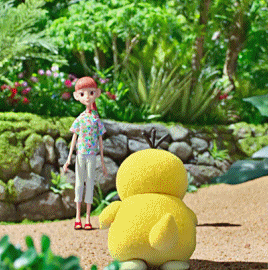

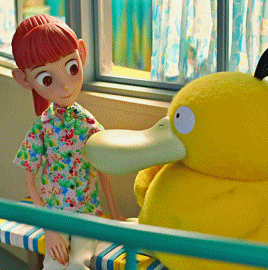

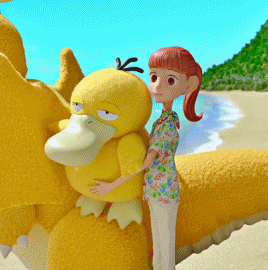
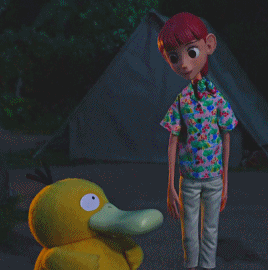
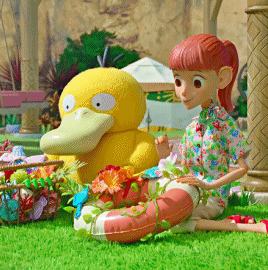
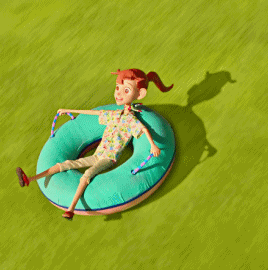
Haru and Psyduck // POKÉMON CONCIERGE
#Psyduck#Pokémon Concierge#Pokemon Concierge#Pokemon#Haru#animationedit#pokemonedit#pokegraphic#animationdaily#stop motion#animation#GIFs#randominternetgifmaker#anigif
4K notes
·
View notes
Photo
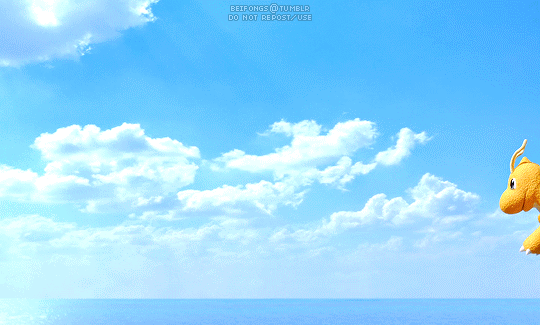
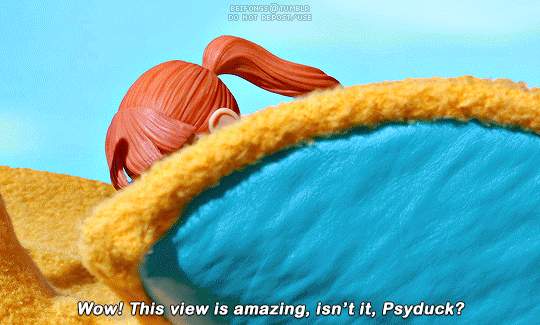
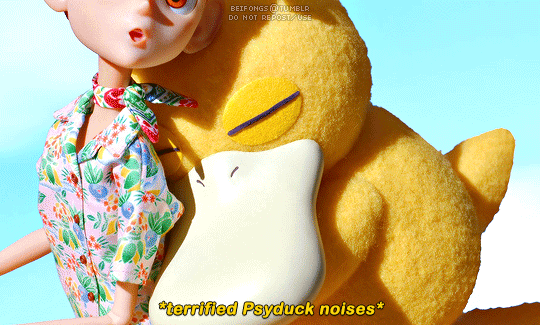
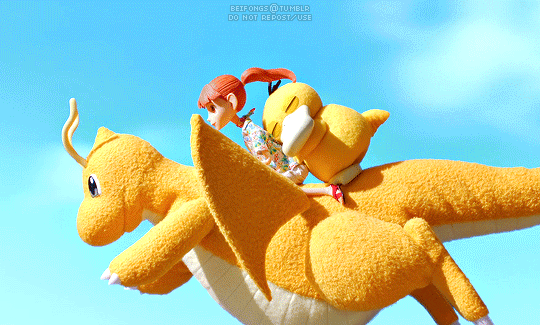
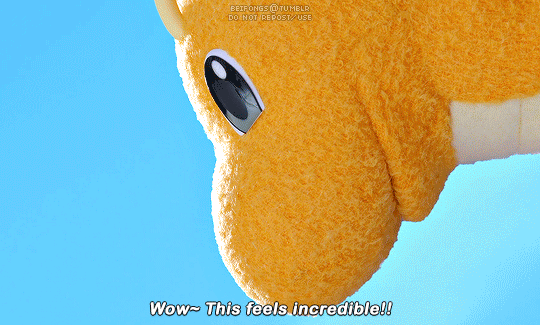
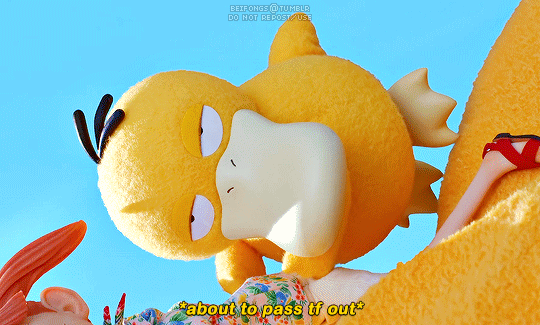
Pokémon Concierge
Over here, people and Pokémon can enjoy the resort together or on their own.
#Pokemon#Pokemon Concierge#pokegraphic#pokemonedit#animationedit#Psyduck#Dragonite#Haru#*mine#oh to be a Pokémon concierge who gets to relax on an island and have fun all day with Pokémon guests...
2K notes
·
View notes
Text
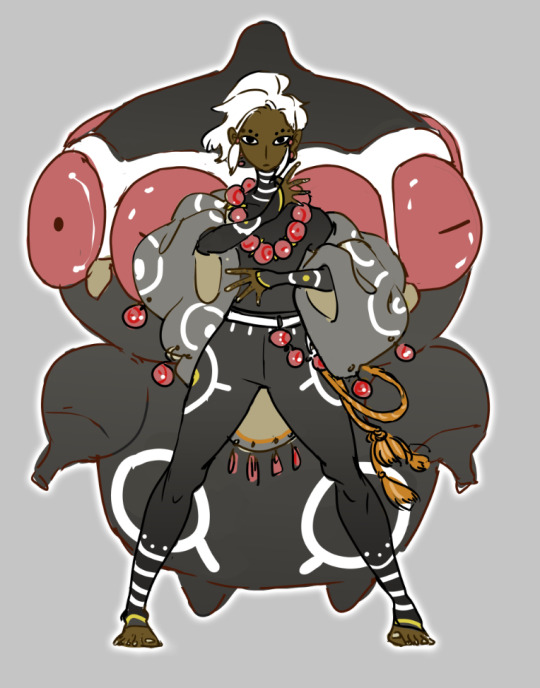
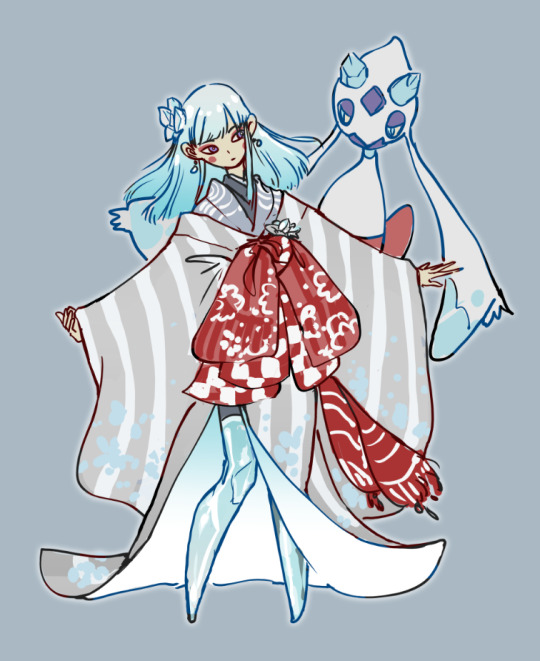

wanted to do the pokemon trainer thing with some ocs
2K notes
·
View notes
Text
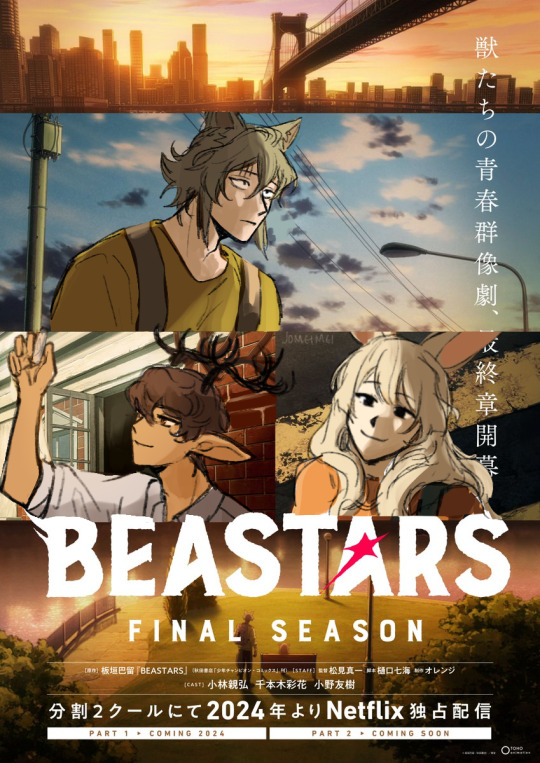
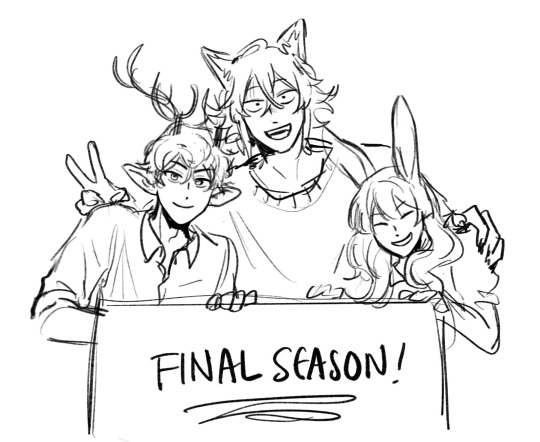
WE ARE SO FUCKING BACK!! 🐺🦌🐇
762 notes
·
View notes
Text
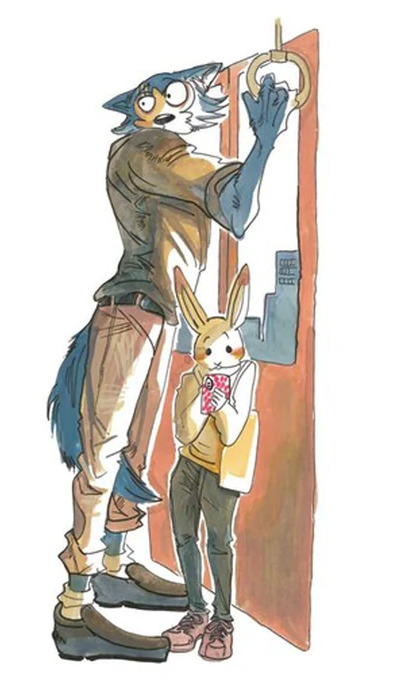
by Paru Itagaki
2K notes
·
View notes
Text

Aggretsuko x Beastars
#beastars#riz#tem#Legoshi#haru#Louis#Juno#bill#pina#I wanted to do this a while ago but I got lazy#I also wanted to it on illustrator but uhh…I got too lazy to
547 notes
·
View notes
Text
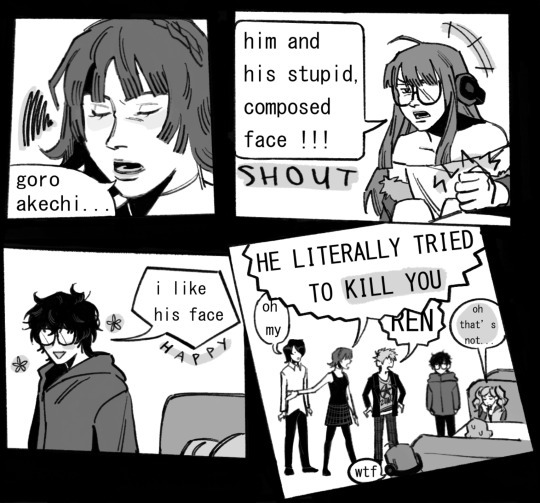

couple one pagers again ! i think maybe i should start adding color to my comics
#goro akechi#persona 5#persona 5 comic#ren amamiya#makoto niijima#futaba#ryuji#akira#akira kurusu#futaba sakura#persona 5 futaba#ryuji sakamoto#ann takamaki#yusuke kitagawa#haru#haru okumura#shuake#makoto is so silly#sillies#ryuji is so silly too#love them#comic#comic art#digital art#p5#p5r#tw blood#the second comic is when they had to capture cognitive akechi for their silly little interrogation room plan#p5 spoilers#fart
679 notes
·
View notes
Text
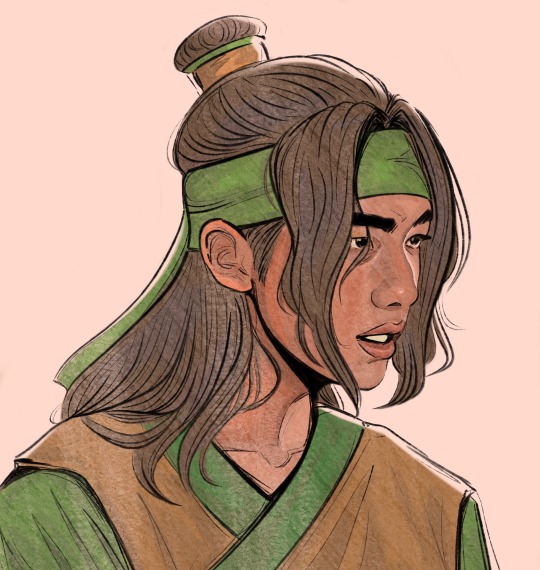
ily king on god we’re gonna get u a razor
#id in alt text#avatar the last airbender#atla#HARU#art#mart#underrated king….#just shave that mustache & he’s perfect#i definitely disregarded him for way too long (for unfortunate facial hair decisions i must say)#but he’s literally awesome and so cute w katara <33 and brown <33#also yes i am now obsessed w this watercolor painting technique and i will probably draw everything in this style for the foreseeable future#until i inevitably get sick of it of course#but rn in my mind im like wow this looks sooooo good#and it’s so easy#thank u procreate pocket watercolor & calligraphy brush u guys are my best friends <3#friendship ended w wet acrylic etc etc#anyway. i love him he’s so wretched of the earth core. literally#also his hair is so fun to draw#his beautiful luscious locks#if haru has ten fans i am one of them if haru has zero fans i am dead etc etc etc
694 notes
·
View notes
Text
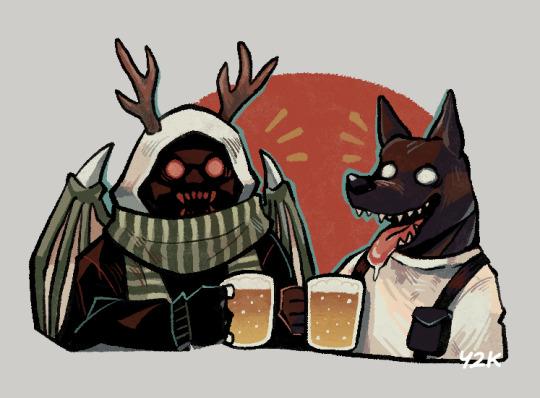
drinking buddies
522 notes
·
View notes
Text
Katara and Mutuality in Relationships
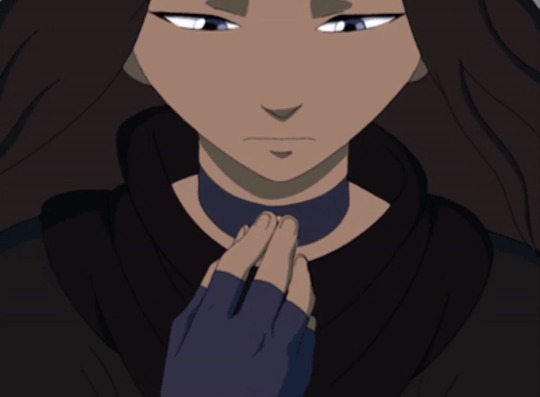
There are lots of conflicting opinions about which characters Katara felt attraction towards, which characters she didn’t, and how long she felt that attraction. I see in most cases, people point to quick clips of her faintly blushing or kissing another character on the cheek as evidence, but I think these kind of takes miss the nuance of the purpose attraction serves in a story.
Most importantly, I see these characters treated as if they are actually people capable of making their own decisions. It’s important to remember that these are fictional characters. They don’t make their own choices; the writers make their choices for them for the purpose of telling a story. From that standpoint, it’s more valuable to examine how a character’s story and narrative themes tie into their relationships with other characters. Animators can shove in a kiss or a blush wherever they want, but it’s harder to demonstrate through storytelling how and why two characters might feel attraction towards one another, and how a relationship between them would develop both characters and contribute to the overarching themes of the story.
In other words, when discussing which characters Katara is “attracted” to, I’m discussing which relationships and actions within the narrative build on her established story and arc. Romance is always integrated into a story for a reason, and considering that reason is important.
Unfortunately, ATLA is very much a product of its time in this way. It’s easy to see what romance adds to the arcs of the male characters—but not so much with the female characters. All three canon relationships (kataang, sukka, and maiko) follow this trend to some degree. The primary purpose of the woman in this narrative is to act as a prize for the man for performing some good deed. Once they’re together, she ceases having her own motivations and becomes an extension of the male character she’s dating. This is pretty blatant with Suki—she barely had a personality in that later seasons; she is there to be Sokka’s girlfriend. Similarly, Katara becomes a completely different character—she’s even animated differently—when the narrative pushes her into romantic scenes with Aang. Her character is flattened.
So what is Katara’s arc, and how do the romantic interactions she has throughout the series contribute to this?
Well, that could be a whole other essay itself, but to put it simply, Katara’s arc is one of a young girl devastated by grief at a young age clinging to hope that she has the power to fight and change the world for the better. Which she does as she gains power and confidence throughout the series—culminating in her defeating Azula in the finale.
But the part I want to focus on here is how Katara connects with other characters. She connects with them over shared experiences of grief and loss.
Take Haru, for instance.
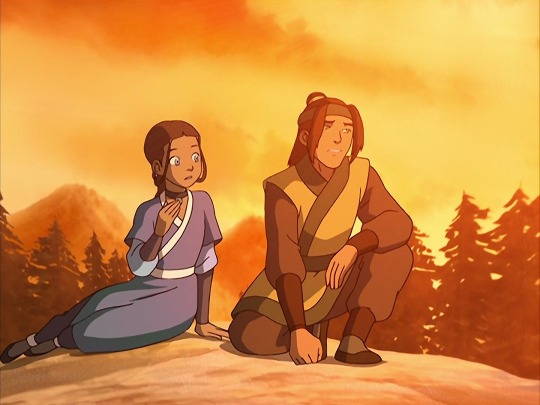
Haru: After the attack, they rounded up my father and every other earthbender, and took them away. We haven't seen them since.
Katara: So that's why you hide your earthbending.
Haru: Yeah. Problem is…the only way I can feel close to my father now is when I practice my bending. He taught me everything I know.
Katara: See this necklace? My mother gave it to me.
Haru: It’s beautiful.
Katara: I lost my mother in a Fire Nation raid. This necklace is all I have left of her.
Haru: It’s not enough, is it?
Katara: No.
This isn’t just a throwaway moment; it’s an important character moment that leads up to growth and the progression of Katara’s overall story, both in this individual episode and in the whole series.
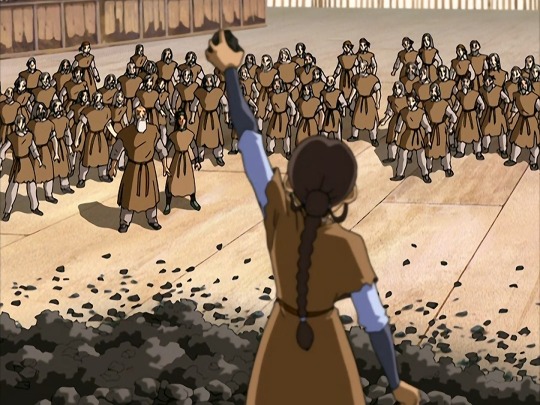
Katara finds her power in the connections she’s able to make with other characters. It’s a powerful driving force for her that makes her a strong character even before her bending abilities develop. Imprisoned was such an important episode to establish who Katara is and what her power is, and adds so much to her arc.
But there is one line in particular from the above exchange that also stands out: Haru says “it’s not enough, is it?” and Katara agrees. Even this early in the series, we’re establishing the fact that despite her drive and hopeful outlook, Katara feels deeply hurt, she feels a deep sense of loss that she opens up about to other characters in moments like these. But unlike Haru…Katara can’t go rescue her mother. Her mother is dead, and we see her grapple with that grief throughout the series.
Another character she reaches out to like this is Jet.
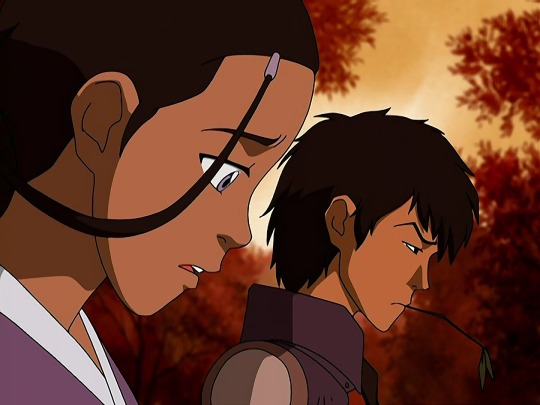
Jet: Longshot over there? His town got burned down by the Fire Nation. And we found The Duke trying to steal our food. I don't think he ever really had a home.
Katara: What about you?
Jet: The Fire Nation killed my parents. I was only eight years old. That day changed me forever.
Katara: Sokka and I lost our mother to the Fire Nation.
Jet: I’m so sorry, Katara.
Another important note about Jet is that there are explicit romantic feelings from Katara in this episode. Again, Katara empathizes with another character through a shared sense of loss. Sadly, in this case, Jet manipulated her feelings and tricked her into helping in his plot to flood the village…but those feelings were undeniably there.
That was the tragedy in this episode, but it also gives the audience so much information about Katara as a character: what motivates her, and what she wants. Katara is established as a character who wants someone who will connect with her and empathize with her over her loss—her greatest sense of trauma. She wants to help others but also receive support in return. The reason why she was smitten with Jet, beyond just initial attraction, is because he gave her a sense of that before Katara realized his true motivations.
A lot of people make the claim that Aang is good for Katara because he also feels a sense of great loss and trauma. And while on paper that’s true…does he really demonstrate that? I just gave two examples of characters Katara connected with this way, and both responded with deep empathy to what she said. Very early on in the show—the third episode—Katara attempts to connect with Aang the same way. How does he respond?
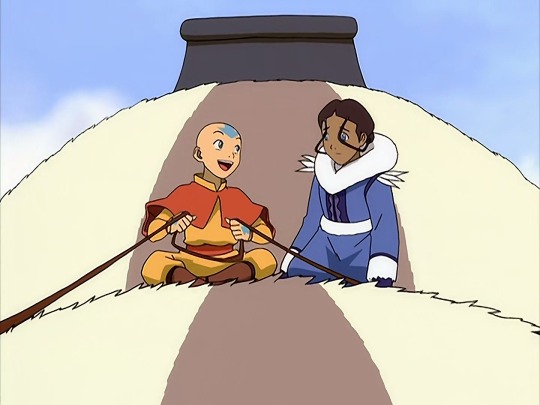
Katara: Aang, before we get to the temple, I want to talk to you about the airbenders.
Aang: What about 'em?
Katara: Well, I just want you to be prepared for what you might see. The Fire Nation is ruthless. They killed my mother, and they could have done the same to your people.
Aang: Just because no one has seen an airbender, doesn't mean the Fire Nation killed them all. They probably escaped!
Just compare this exchange to Haru and Jet. No effort to empathize, not even a “sorry for your loss” or anything. It’s a stark contrast, and the reason for that is because this narrative entirely centers Aang. Katara’s narrative always seems to be secondary to his when they’re together—which is exactly my point when I say this relationship has a fundamental lack of mutuality. It’s built that way from the beginning of the series. It does not add to Katara’s arc nor establish what about this dynamic would attract her.
And, look, before someone jumps down my throat about this…I’m not saying Aang is a horrible person for this response. I think it’s a sign that he’s immature and has a fundamentally different approach to problems than Katara. Katara is a character who has been forced to take on responsibilities beyond her years due to being a child of a war-torn world. Aang’s approach to problems is avoidance while Katara never had that luxury. It doesn’t mesh well.
This is all in Book 1. I honestly could have gotten on board with Kataang if the series meaningfully addressed these issues…but it didn’t. In fact, they actually got worse in some ways.
Back to Katara’s mother. We’ve established that this is a core part of Katara’s character and like in the scene with Haru, she indicates that this is an unresolved issue that pains her. But then, in Book 3, Katara actually does get a chance to confront this pain.
This would have been a powerful moment. Surely the character who is meant to be her partner, her equal, would have been there for her. Surely he would have understood and supported her, fulfilling her narrative and adding to her story.
But Aang didn’t do that. I won’t go into details because there are a million analyses out there on The Southern Raiders, but Aang’s response to Katara was the opposite of understanding. He got angry with her, insinuated that she was a monster for wanting revenge, and tried to dictate her behavior according to his own moral values. And importantly, from a narrative standpoint, he did not go with Katara. One of the most important events in her arc, and Aang didn’t support her—he actually tried stopping her. He didn’t contribute to her growth and development.
Also noteworthy:
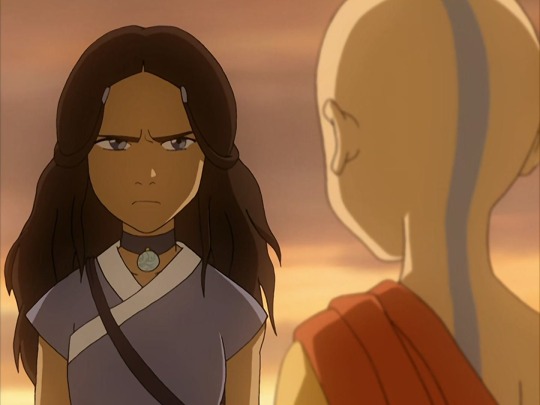
Katara: But I didn’t forgive him. I’ll never forgive him.
Even at the end of the episode, Aang clearly doesn’t understand at all what Katara is feeling. This line demonstrates it perfectly. He thinks she forgave him when that wasn’t the case at all…but of course, he didn’t even accompany her, so he didn’t see what actually took place. His worldview is fundamentally different from hers, and he’s consistently too rigid in his morality and immature to center Katara’s feelings.
Throughout Katara’s whole arc, her most significant character moments, Aang’s character just doesn’t come through the way Katara’s constantly does for him. Their narrative lacks mutuality. When Katara and Aang are together, she becomes an accessory to him. The ending scene is a perfect demonstration of this.
Now, to address the elephant in the room.
Which character does actually add to Katara’s narrative and support her growth as a character?
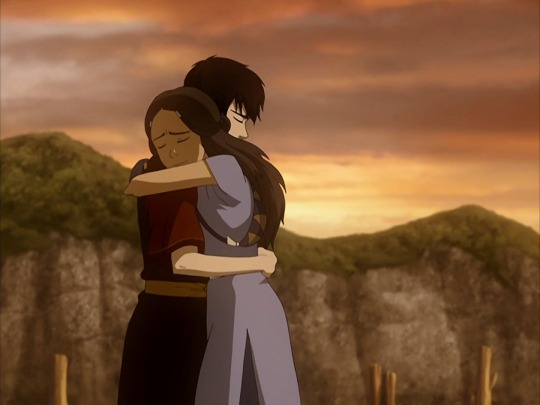
Correct! I just talked about how important The Southern Raiders is to Katara’s character and story, how it’s a chance for her to finally address the grief she’s been carrying since Book 1. And who stood by her side throughout this pivotal moment? Right—Zuko did.
You can talk all you want about how he’s a “colonizer” while Aang’s people suffered genocide, but you’re forgetting that “show, don’t tell” is one of the most basic aspects of storytelling. The fact is, despite how it looks on paper, Zuko was the one there for Katara at her critical moments. Zuko empathized with Katara more than Aang ever did—as demonstrated in this episode. Zuko never once brought up his own cultural values. Zuko never once told Katara what to do. Zuko’s position was that Katara should be the one to decide, and that he would support any choice she made. He supported her decision to spare Yon Rha, but he would have also supported her if she decided to kill him. I actually found this episode to be a satisfying reversal to what is typically seen in TV—for once, the female character is centered while her male counterpart takes the backseat and becomes a supporting role to her narrative.
Even before this, Zuko is shown to empathize with Katara.
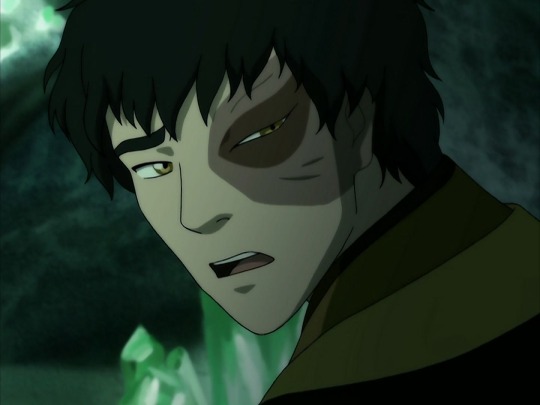
Zuko: I’m sorry. That’s something we have in common.
I think what gets me about this scene is the fact that he’s still Katara’s enemy, and she was just yelling about how she hates him and his people. But despite that, Zuko still empathizes with Katara. She is fundamentally human to him, and he expresses that to her in a way that allows them to connect. Zuko stands to gain nothing from this. It’s true that Azula entered the picture and twisted things around—but in this moment, Zuko’s compassion is genuine. His instinct was to respond to her grief with empathy, just like she consistently does for other characters.
And finally, how else does Zuko add to Katara’s arc?
I don’t think there is any more perfect of an example than the finale itself—the culmination of the arcs and development of all characters.
Zuko and Katara fight together. In a heartbeat, Zuko asks Katara to fight by his side against Azula, because he trusts her strength. She’s his equal—both in his mind, and in a narrative sense.
Then, this:
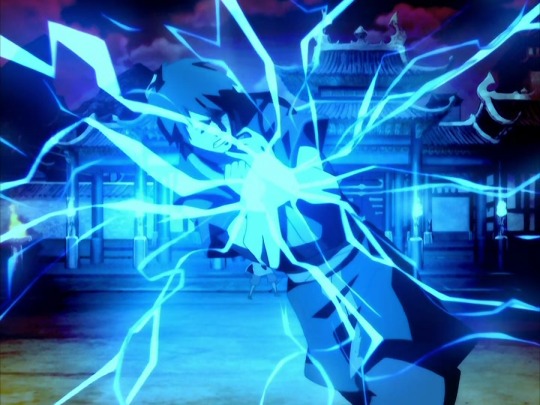
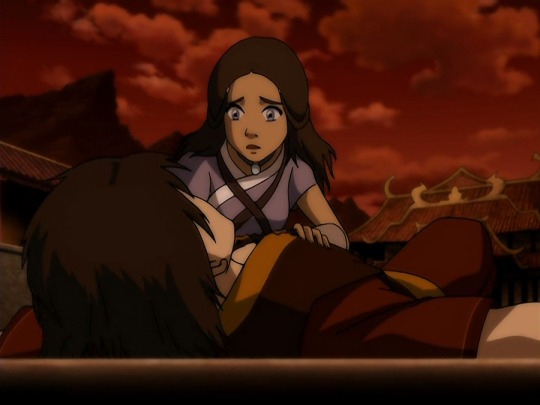
Both of their roles are so critical in this fight. They both save each other. The scene has such raw emotion to it. These characters were together at the conclusion of their respective arcs for a reason.
This is the perfect conclusion to Katara’s arc. She just played a critical role in ending the war that has caused her trauma her whole life. She just demonstrated her mastery of waterbending (another thing she’s dreamed of throughout the series) by defeating the world’s most powerful firebender during Sozin’s Comet. Even though she had help as all characters do, these are victories that belong to her and demonstrate the growth and power of her character. And to top it all off? She was able to save Zuko’s life. She didn’t have to endure the pain of feeling helpless to do anything while someone else died for her; this time, she had an active role, she changed her fate, and she prevailed. Zuko plays an important role in Katara’s story without dominating it. They perfectly represent mutuality. They add to each other’s stories. Their narratives become stronger when they’re together, without one diminishing or sidelining the other.
So, from that standpoint, that’s why I always see the attraction between Zuko and Katara and why I see it lacking between Aang and Katara. Zuko and Katara’s story doesn’t need some cheap little throwaway moments to shine. It’s integral to both characters’ stories. We are shown not told of the way these characters feel about each other. Given everything we know about Katara, her goals, her values, her past loves…absolutely everything points to Zuko being the true subject of her feelings.
Because let’s be honest. The ending I just described is so much more powerful and so much more Katara than seeing her being relegated back to a doe-eyed love interest for Aang to kiss. It hardly even made sense—Katara played no role at all at the culmination of Aang’s arc. She was relegated back to a love interest, rather than the powerful figure we saw fight alongside Zuko.
#zutara#katara#zuko#atla#anti kataang#canon critical#jet#haru#katara deserved better#aang critical#meta#analysis
399 notes
·
View notes
Text

the floof girl with the axe
#digital art#character art#artists on tumblr#persona 5#persona 5 royal#haru#haru okumura#persona#I know I should be making persona 3 drawings right now but I’m still playing it!!!!#so far it’s really good still need to see if it’s better than persona 5 royal once I finish#well I did also just finish p5 tactica so that gives me reason to draw haru#if I draw more p5 it’ll prob be maruki he’s the coolest also I cosplayed him at one point so yeah#anyway haru‼️
410 notes
·
View notes
Text
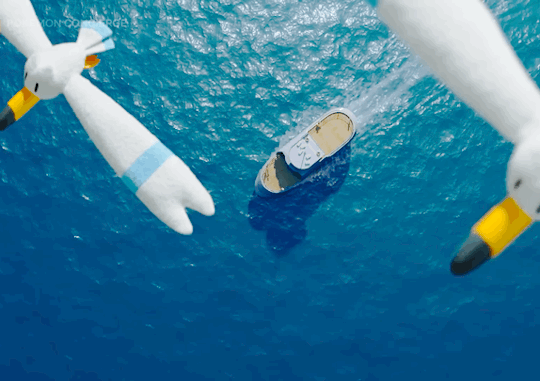



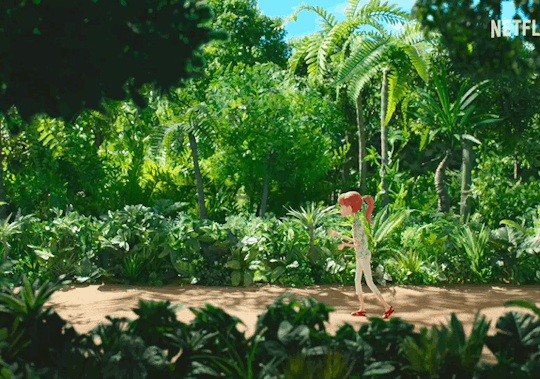

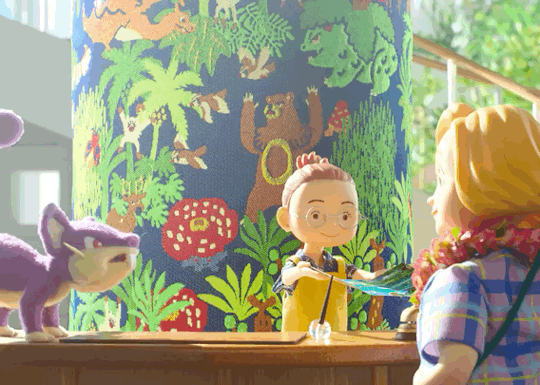
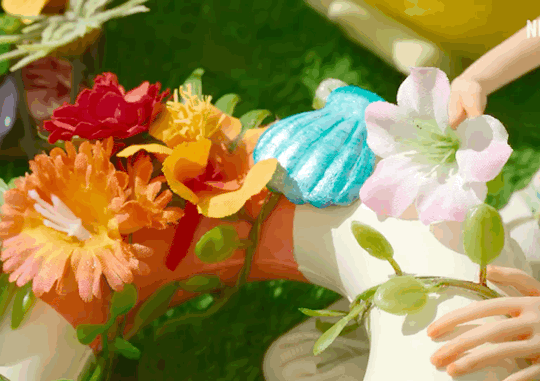
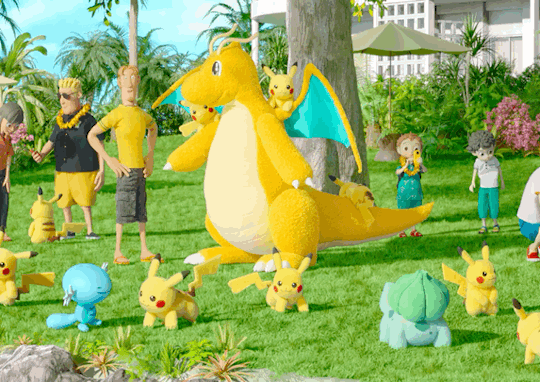
Pokémon Concierge (2023)
The first stop-motion Pokémon series
#Pokémon Concierge#Pokémon#pokemon#Haru Pokémon#Haru#psyduck#dragonite#rattata#magikarp#hoppip#pikachu#wingull#Pokémonedit#pokemonedit#my edit#gif#stop motion#animation
826 notes
·
View notes
Text
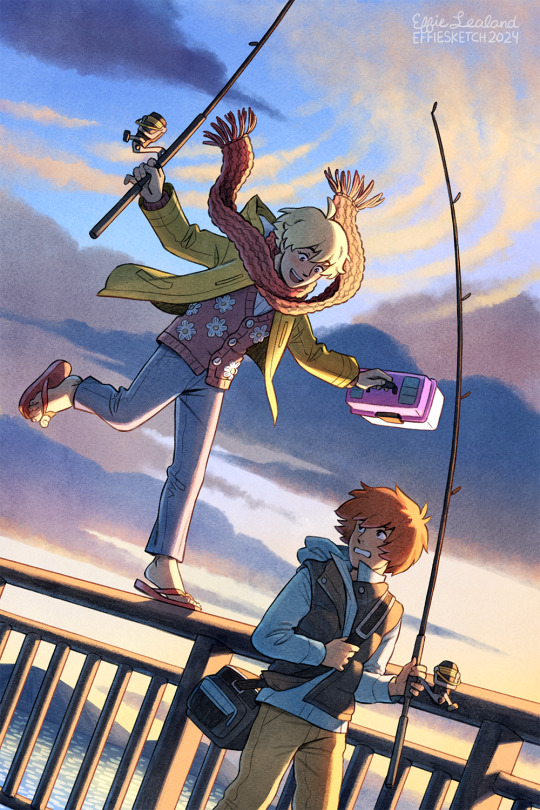
Enoshima winter 🐟 rewatched Tsuritama last month, still one of my faves of all time
436 notes
·
View notes